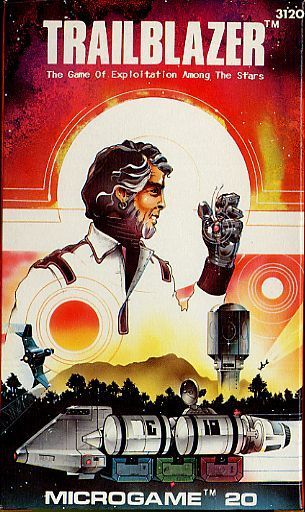Trailblazer (1981) Board Game
Trailblazer is a board game released in 1981, designed by David R. Deitrick and Norman Royal. The game is set in a science fiction universe where players take on the role of space exploration pioneers, competing to discover new planets and resources.
Game Components of Trailblazer
How To Setup Trailblazer
Setup involves each player choosing their starting planet and placing their ships and offices accordingly. Players receive initial capital and goods. The game board is prepared by setting up the price and supply/demand charts, and each player begins with a set amount of money and inventory.
Gameplay Mechanics and Game Objective
Player Experience
Playing **Trailblazer** involves a significant amount of bookkeeping and strategic planning. Players must navigate the complexities of interstellar trade, manage resources, and explore new markets. The game is known for its tedious nature, with critics noting the extensive paperwork and lack of grand strategies.
Pros
Cons
Personal Thoughts on Trailblazer
**Trailblazer** is for players who enjoy intricate economic simulations and are not deterred by detailed record-keeping. It may appeal to fans of science fiction and those interested in the early days of board game design. However, it is not for players seeking quick, action-packed games or those who prefer minimal administrative tasks. If you enjoy the minutiae of trading and managing resources in a sci-fi setting, **Trailblazer** might be the game for you, but if you’re allergic to paperwork, it’s best to look elsewhere.
We are supported by our audience. When you purchase through links on our site, we may earn an affiliate commission, at no extra cost for you. Learn more.

